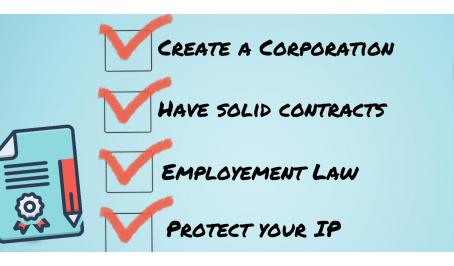Legal Checklist for Expanding Business to the U.S: Create a Corporation
The FACC-NY network is composed of a diverse mosaic of talented, experienced, and open-hearted professionals united by a desire to share their knowledge, nurture meaningful connections, and succeed professionally. In this #MemberInsights blog, we invite a guest member to contribute timely and relevant tips and insight for adapting your activities to overcome immediate challenges and plan for the long-term.
By FACC-NY Member Stephanie Messas
Originally from France, Stephanie Messas, Esq., grew up in a bi-cultural home with one French and one American parent. After high school, Stephanie decided to get in touch with her American roots and moved to the U.S. for her studies to eventually practice law in the international sphere.
Today, Stephanie is Partner of The Messas Law Practice and helps foreign companies develop and thrive in the U.S. by creating corporate structures and identifying diverse legal issues related to corporate governance, intellectual property, and employment.
This is Stephanie's first article we will be posting as part of her Legal Checklist for Expanding to the U.S series to help our members gain legal insight for successfully expanding their businesses to the U.S.
1. Create a Corporation ✓
Do you need to create your US subsidiary?
There are various ways your company can explore the US market for business expansion but, for several reasons, creating a foreign subsidiary may be the best way to protect the assets of its mother entity. Whether you decide to incorporate in America will obviously depend on the opportunities you perceive here, your budget, but also the business’ willingness to undertake legal and cultural challenges in a new country.
The US subsidiary company will be an entity incorporated in a US state. The state of incorporation as well as the type of structure will be specific to your business. However, in most cases, the controlling interest will be either totally or partially held by the mother company.
The main advantage of creating a subsidiary in America is to protect the mother company against any kind of litigation in the US as any liability is limited solely to the subsidiary and does not involve the parent organization. Since the subsidiary has a separate legal identity from the parent organization, the assets of the parent are better protected with a US Subsidiary.
What are the costs to do so?
Costs of corporate creation vary but neither cheaper nor most expensive equate better. The most important part of corporate creation involves getting proper and adequate assistance in terms of compliance with the law, which involves the draft of all mandated corporate records at a price point you feel works for your entity.
Do I need counsel and what should be asking him, her, them?
It is much more cost-effective in the US to strategize to avoid problems than to solve them. There is no law that mandates you to hire an attorney but if you plan on expanding in the US, there is very little you can do without retaining one. Your counsel should be your legal go-to in a country you do not know as well as your home country. You must feel comfortable with him or her, in the same manner, you would trust a business partner. Pick an attorney with whom you are compatible and feel at ease who speaks your language, literally and figuratively. To engage your counsel, ask questions you would ask a business partner: What is your experience? What is your background? How do you work? What are your fees?
Stay tuned for the next article release as part of this series for your questions answered on having solid business contracts, protecting your IP, and employment law.
Interested in connecting with Stephanie and expanding upon these questions? Log into the FACC Member Directory to send her a message.



